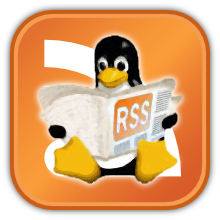1.- Ubuntu 14.04 “Trusty Tahr” released
Canonical has announced that its third Long Term Support (LTS) cloud release, Ubuntu 14.04, will be available from 17 April. Ubuntu 14.04 LTS will run on all major public cloud services and works with service providers including AWS, Azure, HP Cloud, Joyent, and IBM SoftLayer and SmartCloud. The vendor said the update includes new versions of Juju and MAAS to "design, deploy and scale services
2.- Running Unity 8 on Ubuntu 14.04 and Virtual Box.
Unity 8 is one of the hottest things coming inside 2014 both for mobile devices and Ubuntu desktop boxes. Unity 8 will run on a new display server, called Mir, made by Canonical. It will use a Qt/QML SDK for building applications, and it will provide an unified run-time environment across all devices, Mobiles, Tablets and Desktops/Laptops. That means applications should run in all platforms
3.- Dicelab is a tool to calculate the probability distribution of dice rolling schemes.
Dicelab is a tool to calculate the probability distribution of dice rolling schemes, and to roll dice accoring to such schemes. This can be used to analyse or design games, but may be useful in other situations as well. Using a formal language to specify the dice rolling schemes allows dicelab to handle many, if not most, real and imaginable dice rolling problems. Example Assuming a
4.- CUC³ covers an exceptionally broad range of topics in theoretical and quantum chemistry.
The Cambridge University Centre for Computational Chemistry groups theoretically-minded members of the Cambridge Department of Chemistry in premises on the recently refurbished third floor of the Department. Around 50 members, comprising staff, research fellows, postdoctoral associates, postgraduate students, and visiting scientists from all over the world, work on many aspects of theoretical and
5.- COQ is a Proof Assistant for a Logical Framework known as the Calculus of Inductive Constructions.
Coq is a formal proof management system. It provides a formal language to write mathematical definitions, executable algorithms and theorems together with an environment for semi-interactive development of machine-checked proofs. Typical applications include the formalization of programming languages semantics (e.g. the CompCert compiler certification project or Java Card EAL7 certification in
6.- Concalc is a calculator for the Linux console.
Concalc is a calculator for the Linux console. It should also work on all other unix systems. Concalc is just the parser-algorithm of extcalc packed into a simple console program. You can use it if you have need a calculator in your shell. This documentation refers to Concalc version 0.9.2. Installation. 1. Unpack package: "tar -xzf concalc-0.9.2.tar.gz" 2. Change directory: "cd
7.- How to customize a repository on a USB key.
If you have a decent sized USB stick - assuming around 4-8Gb (or external hard drive) you can set up a custom copy of the Ubuntu repository and configure that as a local repository as covered in AptGet/Offline/Repository on help.ubuntu.com. To get the actual package files (the .deb files), I suggest using apt-mirror. The apt-mirror package will help you create a custom mirror which should be
8.- How can I install software or packages without Internet (offline).
Linux Operating System uses a system of shared libraries in which different software share same libraries for their ‘under the hood’ work. This is a really useful and powerful thing and is in accordance with the Unix theory, ”Do one thing and do it very good” (or something like this). But this system become irritating when you are not connected to internet and need to get some software, as you
9.- Lemon is an open source point of sale for Linux and other unix systems.
Lemon is open source and uses open source components. The best advantage of being open source is that you own your information and you are free to move where you want without being tied to a provider. Other advantage is that it gives you the freedom to study the source code, and if you know how, you can adapt it to your needs, correct bugs you find and help to improve it. And, if you dont know
Circlepack is a c program for the creation, display, manipulation, and storage of circle packings using the x window system. Computations may be done in either hyperbolic, euclidean, or spherical geometry, though the routines for the latter are not yet complete, for the theory behind the package, one must consult the research literature. One of the author's primary interests concerns the
If you liked this article, subscribe to the feed by clicking the image below to keep informed about new contents of the blog:
















0 commenti:
Post a Comment